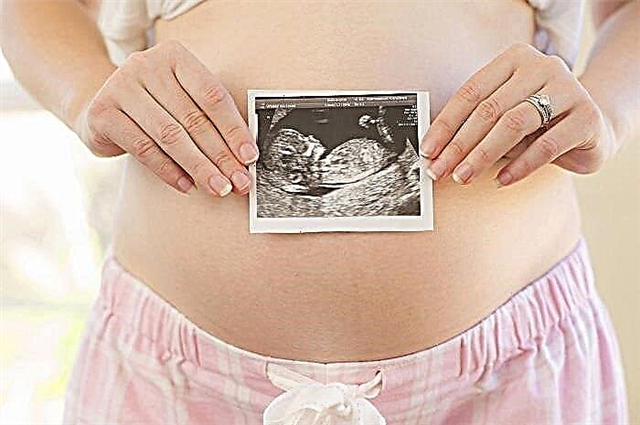Despite the fact that it is customary to say: "Asleep like a child", meaning deep restorative rest, in most cases this is not true. Infant sleep is often interrupted by restless movements and crying. What prevents a baby from sleeping peacefully?

Sleeping baby
What is restless sleep
When parents observe their child, they often notice that the baby does not sleep well at night, turns and groans. Sometimes babies frown, and it seems that they are smiling, sometimes they sharply move their arms and legs. This may be due to the immaturity of the brain mechanisms that control sleep, but not always.
Important! Babies do not have a regular sleep rhythm until about 6 months of age.
Parental experience sometimes does not make it easier to recognize the needs of the newborn. A child's restless sleep causes anxiety for moms and dads, his frequent crying is incomprehensible, and his needs are not obvious. The opinion that a well-fed baby with a dry diaper can sleep peacefully all night has nothing to do with reality.
Signs and causes of restless sleep
The child sleeps anxiously if he:
- shudders;
- groans and fidgets;
- turns;
- groans;
- wakes up often.
Crying babies is also a sign of restless sleep.

Newborn crying
Adults with established circadian rhythms wake up 8 to 10 times a night. Sometimes they change their uncomfortable position in bed or cover themselves with a blanket to keep warm. Most often these awakenings are very short. The person falls asleep again without even realizing it. This is not the case with newborns. They can wake up completely and cry.
Important! Most of childhood awakenings are physiological. With age, they will disappear on their own.
The factors that determine why a baby sleeps poorly can be different:
- The most common cause of restless sleep is intestinal colic in infants. They arise as a result of air entering the gastrointestinal tract, can be caused by lactose intolerance and digestive disorders caused by the consequences of the introduction of complementary foods or improperly selected mixture;
- Teething, in addition to a rise in temperature and profuse salivation, prevents the child from sleeping peacefully, as the gums hurt and itch;
- Central nervous system pathologies arising from difficult childbirth or during intrauterine development;
- Narrow and dry nasal passages;
- Feelings of discomfort. It appears when the baby's diaper is wet or dirty, the baby is cold or hot, clothes that restrict movement, etc. The baby is tossing and turning all night, may cry;
- Emotional experiences. If the baby's usual rhythm of life was disturbed the day before: an unexpected visit from guests, a family celebration, a trip, a prolonged absence of one of the parents, all this for the baby can become emotional stress that disrupts restful sleep;
- The need for closeness with mom is very strong in children. It happens that the child does not feel safe being alone in the crib;
- Infectious diseases;
- Extreme fatigue often interferes with falling asleep and restful sleep;
- In young children, discomfort triggers hunger.
Important! You should not specifically wake your baby up to eat according to clearly defined hours. If the baby is sleeping well, you can feed him later.
The baby grunts and pushes
If a child groans at night, he may simply have an urge to defecate or urinate. However, he is not always able to defecate without problems. There are situations when the baby has constipation, which is accompanied by colic and pain. Then he will draw his legs to the tummy, wriggle and twist.
A newborn grunts and does not sleep at night if he suffers from flatulence. Often he also pushes. When a child is 2 months old grunts and fidgets in his sleep, this may indicate a feeling of discomfort that he is experiencing for one reason or another (cold, hot, uncomfortable clothes, dirty diaper).

The baby is pushing and groaning
The likely reason why a newborn squirms and grunts in sleep is allergic itching. It can also bend while doing this.
The kid is spinning
If the baby is tossing and turning in sleep and grunting, it may be difficult for him to breathe due to the peculiarity of the nasal passages, which are very thin and narrow in infants. If they become inflamed due to a cold, they become even narrower. Grunting becomes especially noticeable at low ambient temperatures.
Important! If the newborn often groans and does not fall asleep, it is prudent to consult a pediatrician to check if he or she has an infection in the throat or airway causing mucosal swelling and interfering with breathing.
The baby moans
The baby may twitch his arms and legs, and moan when the sleep phase changes. Every 40-60 minutes, the phases of superficial and deep sleep alternate. During the period when REM sleep begins, the baby is able to move and moan.
Probably the appearance of groans in infectious diseases associated with fever, teething, intestinal colic.
How to help your baby sleep well
In most cases, the anxious behavior of an infant in a dream is not associated with serious pathologies. Moms and dads are encouraged to take a number of measures to reduce signs of anxiety:
- Overfeeding of the baby should be avoided, as this can provoke indigestion, flatulence and intestinal colic;
- If the reason for the discomfort is a reaction to food, then when breastfeeding, mothers should change their diet by reducing the intake of cow's milk and dairy products, caffeine, fatty and fried foods. For babies who eat an adapted formula, you need to think about replacing it with another variety;
- An important point is to ensure comfortable conditions for sleeping: the temperature in the children's bedroom should be 20-22 degrees, the air humidity should be 50-70%. The room must be regularly ventilated. It is recommended to use air humidifiers during the heating season;
Important! Children are very sensitive to external stimuli. Excessive sounds, colors, odors - all this can cause a negative reaction. Too many external stimuli can provoke anxiety and affect sleep quality.
- Babies fall asleep well to quiet music, singing of a lullaby, light motion sickness;

Baby motion sickness
- It is necessary to exclude exciting games before bedtime, it is better to replace them with a relaxing massage;
- Children's clothing and bedding must be made from natural materials, diapers of dubious quality should not be purchased;
- It is not recommended to use soft, voluminous mattresses and pillows.
- The kid needs a daily stay in the fresh air.
Important! If anxiety in a child's sleep is associated with diseases, you need to contact a pediatrician in a timely manner.
The best sleeping position
If there are no special medical contraindications, then the best sleeping position for the baby is on the back. You can spread it on the baby's tummy only while awake.

The baby sleeps on the back
As for the position on the side, after feeding, you can lay the baby in such a way as to avoid the danger of the belching masses entering the respiratory tract. However, the position on the side is not suitable for long sleep, as it is unstable. The baby may accidentally roll over onto its stomach.
Nights when a toddler sleeps restlessly won't last forever. This is a normal developmental process for babies. Parents should ensure good sleep conditions and try to reduce the influence of factors that interfere with restful rest.



